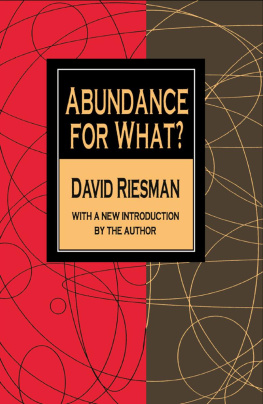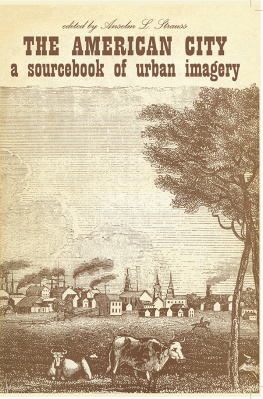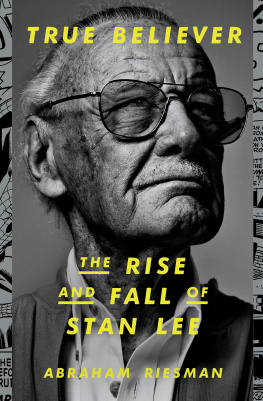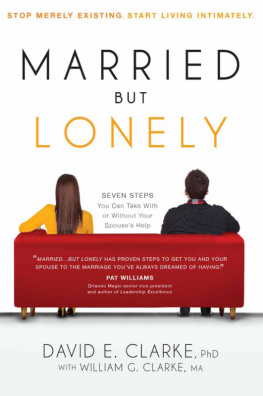David Riesman - The Lonely Crowd
Here you can read online David Riesman - The Lonely Crowd full text of the book (entire story) in english for free. Download pdf and epub, get meaning, cover and reviews about this ebook. year: 1961, publisher: Yale University Press, genre: Science. Description of the work, (preface) as well as reviews are available. Best literature library LitArk.com created for fans of good reading and offers a wide selection of genres:
Romance novel
Science fiction
Adventure
Detective
Science
History
Home and family
Prose
Art
Politics
Computer
Non-fiction
Religion
Business
Children
Humor
Choose a favorite category and find really read worthwhile books. Enjoy immersion in the world of imagination, feel the emotions of the characters or learn something new for yourself, make an fascinating discovery.

- Book:The Lonely Crowd
- Author:
- Publisher:Yale University Press
- Genre:
- Year:1961
- Rating:5 / 5
- Favourites:Add to favourites
- Your mark:
- 100
- 1
- 2
- 3
- 4
- 5
The Lonely Crowd: summary, description and annotation
We offer to read an annotation, description, summary or preface (depends on what the author of the book "The Lonely Crowd" wrote himself). If you haven't found the necessary information about the book — write in the comments, we will try to find it.
David Riesman: author's other books
Who wrote The Lonely Crowd? Find out the surname, the name of the author of the book and a list of all author's works by series.
The Lonely Crowd — read online for free the complete book (whole text) full work
Below is the text of the book, divided by pages. System saving the place of the last page read, allows you to conveniently read the book "The Lonely Crowd" online for free, without having to search again every time where you left off. Put a bookmark, and you can go to the page where you finished reading at any time.
Font size:
Interval:
Bookmark:
The Lonely Crowd
A VERITAS PAPERBACK
The Lonely Crowd
A Study of the Changing American Character
David Riesman
With Nathan Glazer and Reuel Denney
Abridged and Revised Edition
With an Introduction by Richard Sennett
Yale UNIVERSITY PRESS
NEW HAVEN AND LONDON
Veritas paperback edition, 2020.
First abridged edition copyright 1961 by Yale University Press.
Copyright renewed 1989 by David Riesman, Nathan Glazer, and Reuel Denney. Introduction to the Veritas paperback edition copyright 2020 by Richard Sennett.
All rights reserved.
This book may not be reproduced, in whole or in part, including illustrations, in any form (beyond that copying permitted by Sections 107 and 108 of the U.S. Copyright Law and except by reviewers for the public press), without written permission from the publishers.
Yale University Press books may be purchased in quantity for educational, business, or promotional use. For information, please e-mail (U.K. office).
Set in Granjon and Janson types by Newgen North America.
Printed in the United States of America.
Library of Congress catalog card number: 00-105884
ISBN 978-0-30 0-24673-5 (paper)
A catalogue record for this book is available from the British Library.
10 9 8 7 6 5 4 3 2 1
Contents
by Richard Sennett
Introduction
Richard Sennett
The great trauma of American culture is whether to conform or go it alone. The classic poles of the American social imaginary contrasted the pioneer on the frontier to the dutiful, tradition-minded member of a tight-knit village; today we might pit the high-tech entrepreneur against a government lackey. The genius of The Lonely Crowd was to show how alone and conform combine in a certain slice of the middle class. White, straight, corporate America exacts conformitybut to what? The social life of this group offers few sustaining answers about how to live; the content of its shared values is shallow and shifting. Which leaves this privileged crowd adrift; being together has left each person in the crowd feeling isolated.
David Riesman, who wrote The Lonely Crowd with the reporting and advice of Nathan Glazer and Reuel Denny, painted this picture of American character just after the country had emerged from the Great Depression of the 1930s and the Second World War. General Motors, General Electric, and General Foods promised that thanks to being Generalthat is, big, solid corporations with a global reachworkers would become materially secure, and a myriad of opportunities would open up so long as they stayed loyal. Riesman was hardly alone in doubting these promises. Willian H. Whyte in The Organization Man showed how corporate game-playing guaranteed little security to people in the middle ranks, while C. Wright Mills exposed the top-down, paralyzing institutional pressures of daily routine in White Collar. Riesman stood out as a critic because he was so psychologically acute, a master at accounting for peoples inner uncertainties and fears.
And yet. The Lonely Crowd is distinctive because its authors were not simply Jeremiahs bemoaning corporate life.
Henry Adams knew in the nineteenth century that Americans were prone to affirm or deny but not to listen. Riesman, Glazer, and Denny thought that modern Americans were listening to one another at least somewhat more than during the vicious Gilded Age. People were sensitized more to others after the great traumas of Depression and wara conclusion the authors drew from interviewing men and women at home as well as at work, sitting in on school classrooms, eavesdropping at bars, parties, and shopping malls. This mutual sensitivity lay outside the orbit of conformity, just because it was questioning and reactive, rather than toeing the line to a fixed set of rules. The Lonely Crowd probes the crowd in that double sense, as both corporately closed and socially open.
Postwar America was entering on its glory years as an economic and imperial hegemon. Riesman himself believed that America would thus become the cultural model for the societies it dominated, for good and ill, just as it had this double character at home. The export potency of the American model, as Riesman saw it, was rooted in the writings of Alexis de Tocqueville, who had taken American life to be a talisman of modernity more than a century earlier. The Frenchmans work has a particular relation to Riesmans.
In the ancien rgime, farmers, merchants, and aristocrats occupied different life spheres, rather than sharing a common culture. Tocqueville looked at how a common culture came into being in America. He viewed democracy not in political terms but rather as an equality of condition in which people have the same dreams, desires, and prejudices, even though they do not enjoy material equality.
Equality of culture generates a paradox. It is to Tocqueville that we owe the word individualism, which, he argued, led people to withdraw into themselves, concerned about family and friends at the expense of becoming engaged in the public sphere. Culture becomes homogenized; equality of condition means that there is virtue in being an ordinary guy (or gal), no different from anyone else. So why get involved with peoplemigrants, people of a different race, poor peoplewhose lives are alien? Who dont share the same values? You dont get involved. This is Tocquevilles paradox: equality of condition breeds individualism.
Although an admirer of Tocqueville in some ways, Riesman was having none of this. To him, equality of condition breeds anxiety; it oversensitizes people about being accepted. When people are subject to anxiety about belonging, they turn in on themselves, asking, Whats wrong with me? Certainly it would be healthier to ask, Whats wrong with the others? but the power of a crowd makes people worry about why they dont fit in and so focus more on themselves. This view of how equality of condition breeds individualism differs from Tocquevilles by emphasizing self-doubt rather than complacency.
The personalizing of belonging grounds Riesmans famous contrast between inner-direction and other-direction as modes of life. An inner-directed person is guided by an inner gyroscope, by firm values installed by his or her elders which he or she pursues throughout life; whereas an other-directed person is guided by social radarthat is, by peer pressure, sensitized to the expectations and preferences of others. However, there is no one in the control tower saying firmly what is true or false, good or bad. Such firm guidance belongs to the realm of inner-direction.
This may seem rather ethereal, but Riesman makes the distinction more solid by showing how inner-direction suits societies which emphasize production, and other-direction suits societies which emphasize consumption. The inner-directed individual is hands-on and concrete about what he or she wants to achieve; he or she is a maker. Whereas other-direction suits a society of consumption in which fashion and advertising, the new-new must-have gadget, rules. One way to understand Riesmans distinction today lies within social media. Connecting on social media is hyper-other-directed, especially for kids, producing teenage angst about Whats wrong with me? Chat-rooms can be hyper-inner-directed; declarative pronouncements, averring and negating as Henry Adams put it, reign at the expense of interrogative What do you think? chatting.
Writ large, Riesmans contrast was meant to distinguish the nineteenth from the twentieth century; past and present; American rails, steel, oil, and other heavy industries replaced by the American entertainment, media, and communication industries; the immaterial dealings of high finance. Today, in the twenty-first century, the distinction could still be drawn between the two regimes within the development of a company like Apple. Originally driven by obsessed, inner-directed individuals like Steve Jobs and Jony Ive, the corporation has gradually lost innovative focus and energy as it has become larger, more cooperative, more group-driven.
Next pageFont size:
Interval:
Bookmark:
Similar books «The Lonely Crowd»
Look at similar books to The Lonely Crowd. We have selected literature similar in name and meaning in the hope of providing readers with more options to find new, interesting, not yet read works.
Discussion, reviews of the book The Lonely Crowd and just readers' own opinions. Leave your comments, write what you think about the work, its meaning or the main characters. Specify what exactly you liked and what you didn't like, and why you think so.









